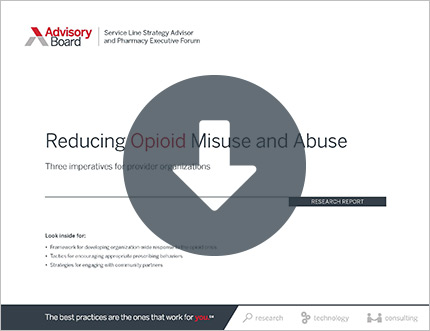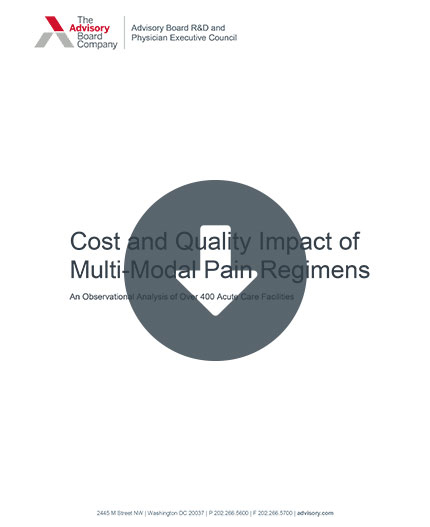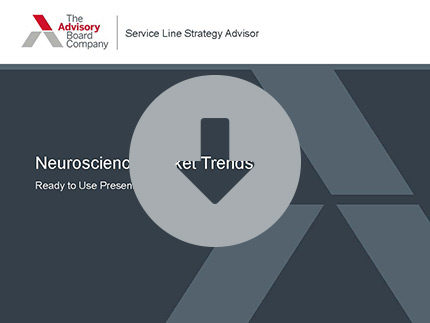Auto logout in seconds.
Continue LogoutWhen doctors came across a patient who barely feels any pain, they found a previously unknown mutation in her genes that suppresses the sensation—a discovery that could open up new possibilities for acute and chronic pain management, according to a report published Wednesday in the British Journal of Anesthesia.
Your top resources for combatting the opioid epidemic in one place
A woman's 'virtually pain-free life'
Doctors first noticed Jo Cameron's insensitivity to pain when she underwent "a normally painful orthopedic hand surgery" for severe arthritis, according to the report. Cameron, now 71, requested very little pain medication during recovery, according to the report—and further investigation revealed this wasn't the first time Cameron experienced less discomfort than other patients.
In 2017, Cameron was diagnosed with severe osteoarthritis with significant joint degeneration and had to undergo hip replacement surgery, but she said she felt no pain before, during, or after the operation, according to the report. Cameron also said childbirth "didn't hurt," even without an epidural. "I could feel that my body was changing, but it didn't hurt me," she said, adding that childbirth felt like "a tickle."
The researchers also found that Cameron had felt less anxiety and fear throughout her life than others, and that injuries to her body heal quickly.
But her pain insensitivity also had a downside: The doctors discovered Cameron had "multiple scars around the arms and on the back of her hands." She revealed that there'd been times she'd burned her hand, and didn't realize it was burning until she smelled her flesh burning.
Given her medical history, Cameron's doctors grew curious, and hypothesized that that the reason for Cameron's pain insensitivity might lie in her genes.
Doctors discover new pain suppressing gene mutation
Researchers at University College London's Molecular Nociception Group sequenced and analyzed Cameron's genome and found a previously unidentified mutation that was responsible for her "virtually pain-free life," according to the New York Times.
The mutation is in a region the researchers termed FAAH-OUT. The FAAH protein breaks down anandamide, which is sometimes called the "bliss molecule." When FAAH breaks down anandamide properly, it allows people to experience feelings of pain and different moods.
But because Cameron's gene mutation suppressed FAAH's activity, she had higher levels of anandamide, which the doctors said could explain why she felt less pain, STAT News reports.
Could the discovery lead to an alternative form of pain management for patients?
According to the Times, scientists have encountered patients who do not experience pain for about a century, but this is the first time pain insensitivity has been linked to a genetic mutation.
While the researchers cautioned that the gene mutation so far has only been observed in one patient, they wrote the finding could open up a new pathway for non-opioid acute and chronic pain management.
For example, the researchers noted that previous studies have targeted FAAH and failed, but the discovery of the FAAH-OUT mutation offers a new means of targeting the pain-regulating endocannabinoid receptor.
Dev Srivastava, one of the researchers involved in the report and a consultant in anesthesia and pain medicine at Raigmore Hospital in Scotland, said, "This discovery opens up numerous possibilities of developing drugs using the endocannabinoid pathway to modify how pain is experienced." He added that the discovery "could be developed into a wonder drug" for treating surgical patients, those with cancer, or those with chronic pain.
But there are risks, the researchers noted. They found suppression the FAAH gene is associated with poor memory function. While Cameron lives a largely pain-free life, she said she often forgets where she put her keys and loses her thought mid-sentence, according to the Times.
In addition, researchers often warn that completely eliminating pain can be dangerous, as Cameron's case presents.
James Cox, another author and senior lecturer at the Wolfson Institute for Biomedical Research at University College London, said, "Pain is an essential warning system to protect you from damaging and life-threatening events."
But, using the discovery to develop a pain treatment is not impossible, according to Stephen Waxman, a neurologist at Yale University who was not involved in the report. In fact, the researchers are considering further research into the mutation to someday design a treatment that would not trigger unwanted side effects in patients. "I'm reasonably confident that the lessons we are learning from the genes involved in pain will lead to the development of an entirely new class of pain medications," Waxman said (Murphy, New York Times, 3/28; Corley, STAT News, 3/27).
Get our ready-to-use slides on the latest neurosciences market trends
Download the slides to learn everything you'll need to know about the neuroscience market in 2018, from growth outlook and financial considerations to new care management priorities and technology innovations.
Don't miss out on the latest Advisory Board insights
Create your free account to access 1 resource, including the latest research and webinars.
Want access without creating an account?
You have 1 free members-only resource remaining this month.
1 free members-only resources remaining
1 free members-only resources remaining
You've reached your limit of free insights
Become a member to access all of Advisory Board's resources, events, and experts
Never miss out on the latest innovative health care content tailored to you.
Benefits include:
You've reached your limit of free insights
Become a member to access all of Advisory Board's resources, events, and experts
Never miss out on the latest innovative health care content tailored to you.
Benefits include:
This content is available through your Curated Research partnership with Advisory Board. Click on ‘view this resource’ to read the full piece
Email ask@advisory.com to learn more
Click on ‘Become a Member’ to learn about the benefits of a Full-Access partnership with Advisory Board
Never miss out on the latest innovative health care content tailored to you.
Benefits Include:
This is for members only. Learn more.
Click on ‘Become a Member’ to learn about the benefits of a Full-Access partnership with Advisory Board
Never miss out on the latest innovative health care content tailored to you.



